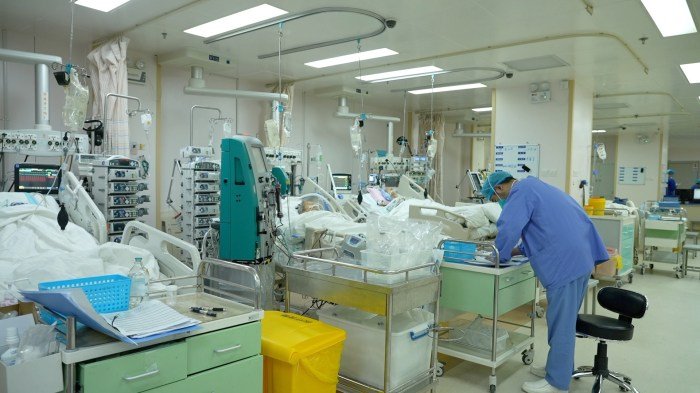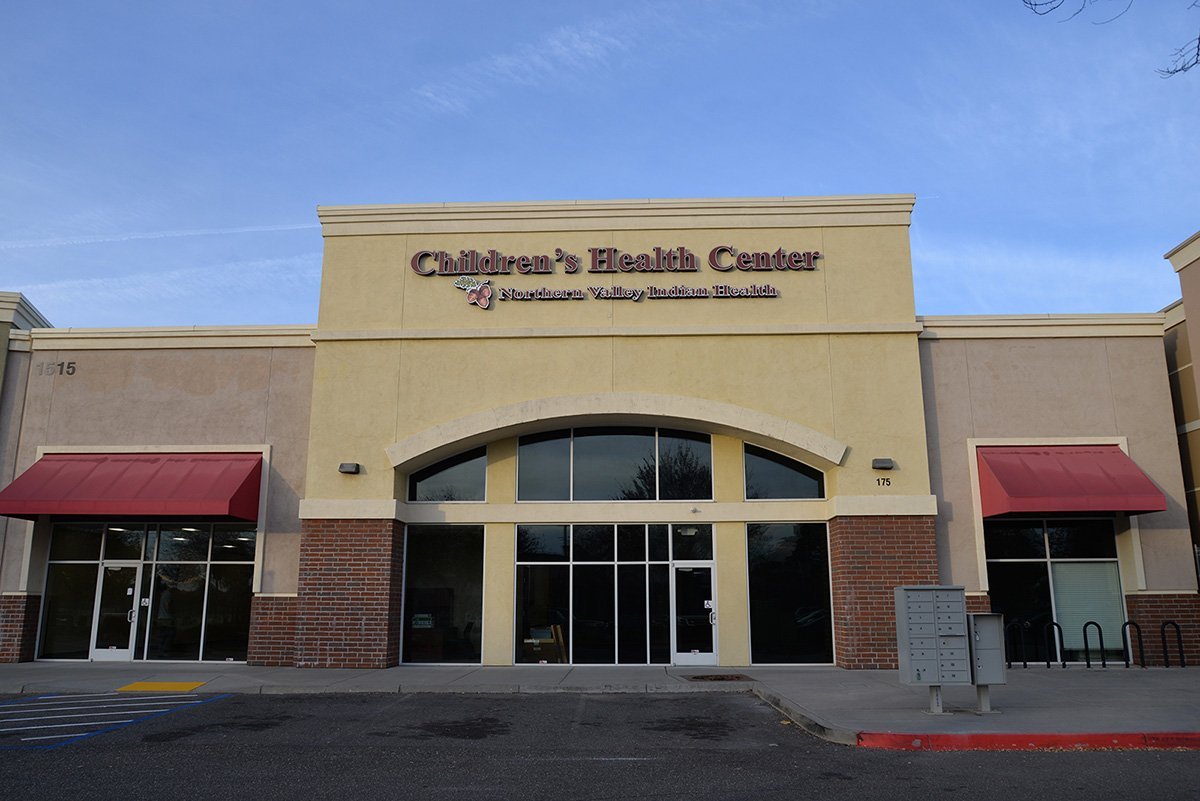Women’s health centers are essential pillars of the healthcare system, providing a wide range of services tailored specifically to women’s unique needs. These centers are more than just clinics; they are spaces where women can access comprehensive care, receive personalized support, and empower themselves to take charge of their health and well-being.
From reproductive health services and prenatal care to breast health screenings and mental health support, women’s health centers offer a comprehensive approach to healthcare, addressing the multifaceted aspects of women’s lives. By offering a welcoming and non-judgmental environment, these centers strive to break down barriers to care, ensuring that all women have access to the resources they need to thrive.
What are Women’s Health Centers?

Women’s health centers are dedicated to providing comprehensive healthcare services specifically tailored to the unique needs of women throughout their lives. These centers play a crucial role in promoting women’s well-being and empowering them to make informed decisions about their health.
Types of Women’s Health Centers
Women’s health centers can be categorized into different types, each with its own focus and services.
- Community Health Centers:These centers are often non-profit organizations that provide affordable and accessible healthcare services to underserved communities. They may offer a wide range of services, including preventive care, family planning, and mental health support.
- Private Clinics:These centers are independently owned and operated, offering a variety of women’s health services. They may specialize in specific areas, such as obstetrics and gynecology, or provide a more comprehensive range of services.
- Specialized Centers:These centers focus on specific areas of women’s health, such as breast cancer screening, infertility treatment, or menopause management. They often have specialized equipment and expertise to provide specialized care.
Services Offered by Women’s Health Centers
Women’s health centers offer a comprehensive range of services, encompassing preventive care, diagnostic testing, treatment, and support.
- Preventive Care:This includes regular checkups, screenings for various conditions, and vaccinations.
- Family Planning:Services include contraception counseling, birth control methods, and pregnancy testing.
- Obstetrics and Gynecology:Services include prenatal care, labor and delivery, postpartum care, and management of gynecological conditions.
- Mental Health Services:These centers may offer counseling, therapy, and support groups for mental health concerns.
- Sexual Health Services:Services include sexually transmitted infection (STI) testing, treatment, and prevention counseling.
- Menopause Management:Centers may provide hormone therapy, counseling, and other services to manage menopause symptoms.
Services Offered by Women’s Health Centers

Women’s health centers offer a wide range of services designed to meet the unique needs of women throughout their lives. These centers provide comprehensive care that addresses physical, mental, and emotional well-being.
Reproductive Health Care
Reproductive health care services are essential for women’s overall health and well-being. These services empower women to make informed decisions about their reproductive health and plan for their future.
| Service | Description | Benefits | Considerations |
|---|---|---|---|
| Family Planning | Provides information and counseling on various contraceptive methods, including hormonal methods, barrier methods, and natural family planning. | Allows women to control their fertility, prevent unintended pregnancies, and plan for future family size. | Some methods may have side effects or require regular monitoring. |
| Contraception | Offers a variety of contraceptive options, such as birth control pills, implants, intrauterine devices (IUDs), and condoms. | Prevents pregnancy, reduces the risk of sexually transmitted infections (STIs), and can help manage menstrual cycles. | It is important to choose a method that is suitable for individual needs and health conditions. |
| Abortion Care | Provides safe and legal abortion services, including medication abortion and surgical abortion. | Empowers women to make decisions about their pregnancies and provides access to safe and legal termination options. | Abortion is a sensitive topic, and it is important to respect individual choices and beliefs. |
Prenatal and Postpartum Care
Prenatal and postpartum care are essential for the health of both the mother and the baby. These services provide comprehensive support throughout pregnancy and the postpartum period.
| Service | Description | Benefits | Considerations |
|---|---|---|---|
| Prenatal Care | Includes regular checkups, ultrasounds, blood tests, and education on pregnancy and childbirth. | Monitors the health of the mother and baby, identifies and manages potential complications, and prepares for childbirth. | Regular prenatal appointments are crucial for healthy pregnancy outcomes. |
| Postpartum Care | Provides support and guidance during the postpartum period, including physical recovery, breastfeeding support, and emotional well-being. | Helps mothers adjust to motherhood, manage postpartum recovery, and address any challenges they may face. | Postpartum care is essential for both physical and emotional recovery after childbirth. |
Breast Health Services
Breast health services are crucial for early detection and prevention of breast cancer. These services include screenings, diagnostics, and treatment options.
Women’s health centers offer a comprehensive range of services, from preventative care to specialized treatments. They often partner with organizations like max health services to provide additional resources and support, ensuring women have access to the best possible care.
This collaborative approach helps to address the unique health needs of women throughout their lives.
| Service | Description | Benefits | Considerations |
|---|---|---|---|
| Breast Cancer Screenings | Offers mammograms, clinical breast exams, and other screening tests to detect breast cancer at an early stage. | Early detection of breast cancer significantly improves treatment outcomes and survival rates. | Regular screenings are recommended based on individual risk factors. |
| Breast Cancer Diagnostics | Provides diagnostic tests, such as biopsies and imaging studies, to confirm or rule out breast cancer. | Provides accurate diagnosis and allows for timely and appropriate treatment. | Diagnostic tests are essential for determining the nature and extent of breast cancer. |
STD Testing and Treatment
Sexually transmitted infections (STIs) are common, and early detection and treatment are crucial for preventing complications.
| Service | Description | Benefits | Considerations |
|---|---|---|---|
| STD Testing | Offers confidential and accurate testing for various STIs, including chlamydia, gonorrhea, syphilis, and HIV. | Early detection allows for prompt treatment and prevents the spread of infection. | Regular testing is recommended for sexually active individuals. |
| STD Treatment | Provides effective treatment for diagnosed STIs, including antibiotics and other medications. | Cures or manages STIs, prevents complications, and reduces the risk of transmission. | Treatment should be completed as prescribed to ensure full recovery. |
Mental Health Care, Women’s health center
Mental health is an integral part of overall well-being, and women’s health centers provide mental health services to address a wide range of needs.
| Service | Description | Benefits | Considerations |
|---|---|---|---|
| Counseling and Therapy | Offers individual, group, and family therapy to address mental health concerns, such as anxiety, depression, stress, and relationship issues. | Provides support, coping mechanisms, and strategies for managing mental health challenges. | Mental health care is essential for promoting emotional well-being and improving quality of life. |
Cancer Screenings and Prevention
Cancer screenings and prevention services are crucial for early detection and reducing the risk of cancer.
Women’s health centers offer a comprehensive range of services, from preventative care to addressing specific health concerns. Maintaining a healthy lifestyle is crucial for overall well-being, and that includes incorporating regular fitness into your routine. Women’s health centers can provide guidance and support to help you achieve your fitness goals, further enhancing your overall health and wellness.
| Service | Description | Benefits | Considerations |
|---|---|---|---|
| Cancer Screenings | Offers screenings for various cancers, including cervical cancer, breast cancer, and colorectal cancer. | Early detection of cancer improves treatment outcomes and survival rates. | Regular screenings are recommended based on individual risk factors and age. |
| Cancer Prevention | Provides education and counseling on healthy lifestyle choices, such as diet, exercise, and smoking cessation, to reduce cancer risk. | Promotes overall health and reduces the likelihood of developing cancer. | Lifestyle modifications can significantly impact cancer risk. |
Wellness Services
Wellness services promote overall health and well-being, addressing physical, mental, and emotional needs.
| Service | Description | Benefits | Considerations |
|---|---|---|---|
| Nutrition Counseling | Provides personalized nutrition guidance and support to promote healthy eating habits. | Improves overall health, manages weight, and reduces the risk of chronic diseases. | Nutrition counseling can be tailored to individual needs and preferences. |
| Exercise Programs | Offers fitness classes, exercise programs, and personalized fitness plans to promote physical activity. | Improves cardiovascular health, strengthens muscles, and reduces the risk of chronic diseases. | Exercise programs should be tailored to individual fitness levels and goals. |
| Stress Management | Provides techniques and strategies for managing stress, such as relaxation exercises, mindfulness practices, and stress reduction workshops. | Reduces stress levels, improves mental health, and promotes overall well-being. | Stress management techniques can be customized to individual needs and preferences. |
Importance of Women’s Health Centers

Women’s health centers play a crucial role in ensuring equitable access to healthcare for women, particularly those who face barriers to traditional healthcare settings. These centers provide a vital lifeline for women, offering a comprehensive range of services that address their unique health needs.
Women’s health centers offer a wide range of services, from preventative care to specialized treatments. While not directly related, many women also enjoy visiting the beauty shop at walmart for a quick pick-me-up. Ultimately, prioritizing both physical and mental well-being is essential for a balanced lifestyle, and women’s health centers play a vital role in supporting that goal.
Addressing Health Disparities
Women’s health centers are essential in addressing health disparities that disproportionately impact women. They offer culturally sensitive and affordable care, ensuring that women from diverse backgrounds have access to quality healthcare. These centers recognize the unique challenges faced by women, such as limited access to transportation, childcare, and insurance coverage, and work to overcome these obstacles.
Impact on Access to Care
Studies have consistently demonstrated the positive impact of women’s health centers on improving access to care for women. For instance, a 2020 study by the National Women’s Health Network found that women who received care at a women’s health center were more likely to have regular preventive screenings, such as mammograms and Pap smears.
These centers also provide crucial services like contraception, family planning, and sexually transmitted infection (STI) testing and treatment, which are often inaccessible or stigmatized in traditional healthcare settings.
Empowering Women
Women’s health centers empower women to take control of their health by providing comprehensive education and support. These centers offer a safe and confidential environment where women can discuss their concerns openly and receive personalized guidance. They provide information on a wide range of topics, including reproductive health, nutrition, mental health, and chronic disease management.
This empowers women to make informed decisions about their health and well-being.
Challenges Faced by Women’s Health Centers

Women’s health centers face various challenges in providing comprehensive care to their patients. These challenges can significantly impact their ability to deliver essential services and create barriers for women seeking healthcare.
Funding Cuts and Policy Changes
Funding cuts and policy changes have a profound impact on the accessibility of women’s health services. Reduced funding can lead to staff shortages, limited resources, and restricted access to vital services like contraception, cancer screenings, and prenatal care.
For example, the Affordable Care Act (ACA) has expanded access to healthcare for millions of Americans, including women. However, recent efforts to repeal or weaken the ACA have threatened the funding for essential women’s health services.
Stigma, Cultural Barriers, and Limited Access to Transportation
Women’s health centers often encounter challenges related to stigma, cultural barriers, and limited access to transportation. Stigma surrounding reproductive health services can discourage women from seeking care, particularly for issues like abortion or sexually transmitted infections. Cultural barriers can also hinder access to care, as women may face societal pressures or religious beliefs that restrict their healthcare choices.
Limited access to transportation can further exacerbate these challenges, especially for women living in rural areas or low-income communities.
The Future of Women’s Health Centers

The future of women’s health centers is bright, driven by emerging trends and innovations that are transforming healthcare delivery. These centers are poised to play an increasingly vital role in promoting women’s well-being and empowering them to take charge of their health.
The Impact of Telehealth and Remote Healthcare
Telehealth and remote healthcare are revolutionizing access to healthcare services, particularly for women in underserved areas. These technologies offer a range of benefits, including:
- Increased Accessibility:Telehealth removes geographical barriers, allowing women in rural or remote areas to access specialized care without extensive travel. For example, a woman in a rural community can consult with a gynecologist remotely for routine checkups or prenatal care.
- Convenience and Flexibility:Remote healthcare appointments can be scheduled at times that are convenient for women, reducing the need to take time off work or arrange childcare.
- Improved Continuity of Care:Telehealth enables women to connect with their healthcare providers more frequently, fostering a stronger patient-provider relationship and improving the continuity of care.
Women’s health centers are embracing telehealth to expand their reach and provide more accessible care. This includes virtual consultations, remote monitoring of chronic conditions, and online resources for health education and support.
Strategies for Sustainability and Expansion
To ensure the long-term sustainability and expansion of women’s health centers, several strategies are crucial:
- Building Strong Partnerships:Collaborating with community organizations, healthcare providers, and government agencies can enhance resources and services. For instance, partnerships with local schools can provide comprehensive sex education and reproductive health services to young women.
- Adopting Innovative Funding Models:Exploring alternative funding sources, such as philanthropic grants, social impact investments, and community-based fundraising, can help secure financial stability.
- Leveraging Technology:Implementing telehealth platforms, electronic health records, and data analytics can improve efficiency, reduce costs, and enhance patient care.
By embracing innovation and forging strategic partnerships, women’s health centers can thrive in the future, ensuring that women have access to the high-quality care they need to lead healthy and fulfilling lives.
Conclusion

In conclusion, women’s health centers play a vital role in promoting women’s health and well-being. They provide access to essential services, empower women to take control of their health, and advocate for policies that support women’s health needs. By addressing health disparities, fostering a culture of preventative care, and promoting innovation in women’s healthcare, these centers are shaping a brighter future for women’s health.
Query Resolution
What are the costs associated with services at a women’s health center?
The cost of services varies depending on the specific center, location, and type of service. Many centers offer sliding-scale fees or accept insurance, making services accessible to a wide range of individuals. It’s best to contact the specific center for detailed information on their pricing and payment options.
How can I find a women’s health center near me?
There are several resources available to help you find a women’s health center in your area. You can search online directories, contact your local health department, or ask for recommendations from your primary care provider.
Are women’s health centers confidential?
Yes, women’s health centers are committed to maintaining patient confidentiality. All information shared with the center is kept private and secure.